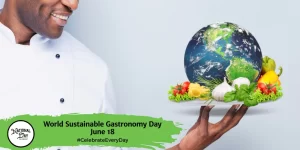There are gospel texts which we find difficult to understand, others we see as very demanding.
But there are some which, somehow, are encouraging.
On many occasions, the attitude of the apostles can make us feel that we are not so far from them!
They had lived for some three years with Jesus.
They had heard him teach people about many things.
They had seen him perform miracles, even raising some dead people to life.
And yet, yet… so often they did not understand him, nor recognize what he was about.
I n today’s gospel text, as Jesus appears to them, his disciples think they see… a ghost ! (Luke 24:35-48).
n today’s gospel text, as Jesus appears to them, his disciples think they see… a ghost ! (Luke 24:35-48).
Of course, they knew he had been tortured and had died a cruel death on a cross.
They thought – rightly so – that he had really died.
How could he be there alive before them?
He has to repeat that he is truly their Master.
He has to give them some proofs – the kind of proofs that they will understand:
he shows them his hands and feet that have been pierced,
he asks them food to eat, and he eats in front of them.
But he has to do more.
The evangelist Luke tells us:
“He opened their minds so they could understand…”
Understand what his whole life was about.
Understand what his suffering and death were for.
Understand how they had to share with others what they had seen as witnesses do.
Perhaps we need the same kind of understanding…
The Risen Christ can open our own minds… if we ask him to do so…
Note: Another text is available on a different theme, in French, at: https://image-i-nations.com/3e-dimanche-de-paques-annee-b-2024/

 brought back to life.
brought back to life.
 Word Sustainable Gastronomy Day on June 18 recognizes the practices and principals associated with sustainable food consumption combined with the art of collecting, preparing, and consuming the food we eat. As part of the observance, the day acknowledges the social, cultural, and artistic expression related to gastronomy and defines three dimensions of sustainable development – people, planet, and profit.
Word Sustainable Gastronomy Day on June 18 recognizes the practices and principals associated with sustainable food consumption combined with the art of collecting, preparing, and consuming the food we eat. As part of the observance, the day acknowledges the social, cultural, and artistic expression related to gastronomy and defines three dimensions of sustainable development – people, planet, and profit. International Chefs Day is celebrated each year on October 20th. The day focuses on educating kids around the world about eating healthy. It’s also a day for chefs to pass on their knowledge and skills to the next generation of chefs.
International Chefs Day is celebrated each year on October 20th. The day focuses on educating kids around the world about eating healthy. It’s also a day for chefs to pass on their knowledge and skills to the next generation of chefs. Just imagine for a moment a man standing before a group of people.
Just imagine for a moment a man standing before a group of people. This is more or less a reproduction of what the scene in today’s gospel offers us (Jn.6:41-51).
This is more or less a reproduction of what the scene in today’s gospel offers us (Jn.6:41-51).

 The scene is well known to us: the apostles are caught up in a storm on the lake at nighttime.
The scene is well known to us: the apostles are caught up in a storm on the lake at nighttime. Every so often a thing comes to pass that is of such astounding importance that we must stand up and recognize i
Every so often a thing comes to pass that is of such astounding importance that we must stand up and recognize i